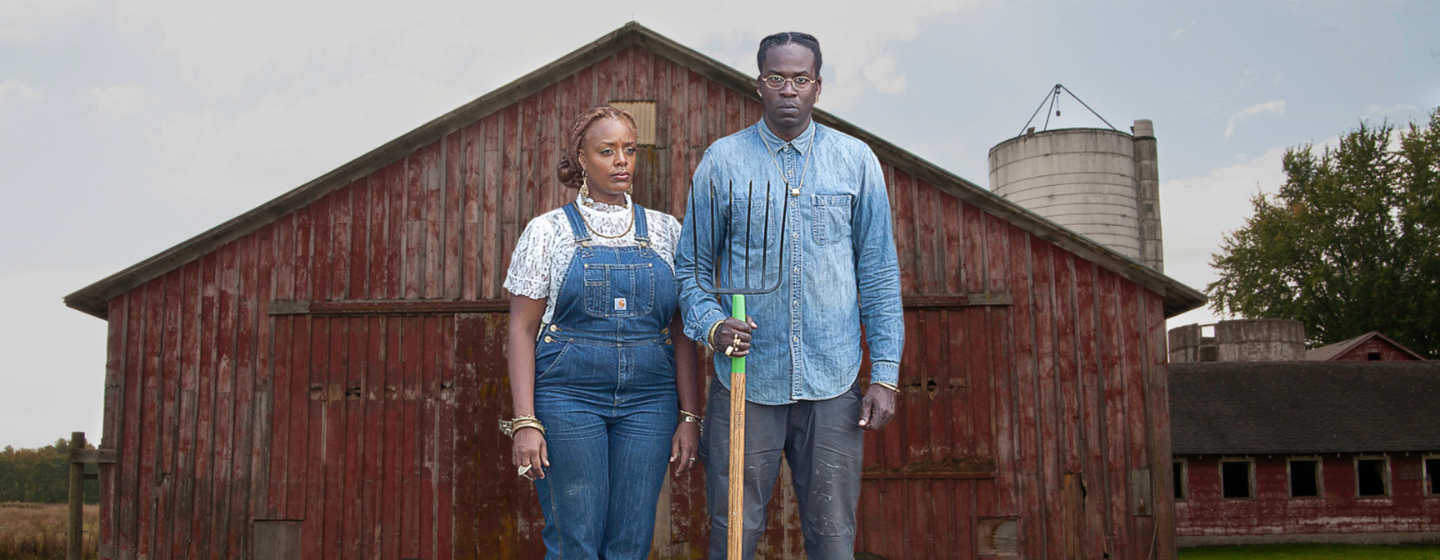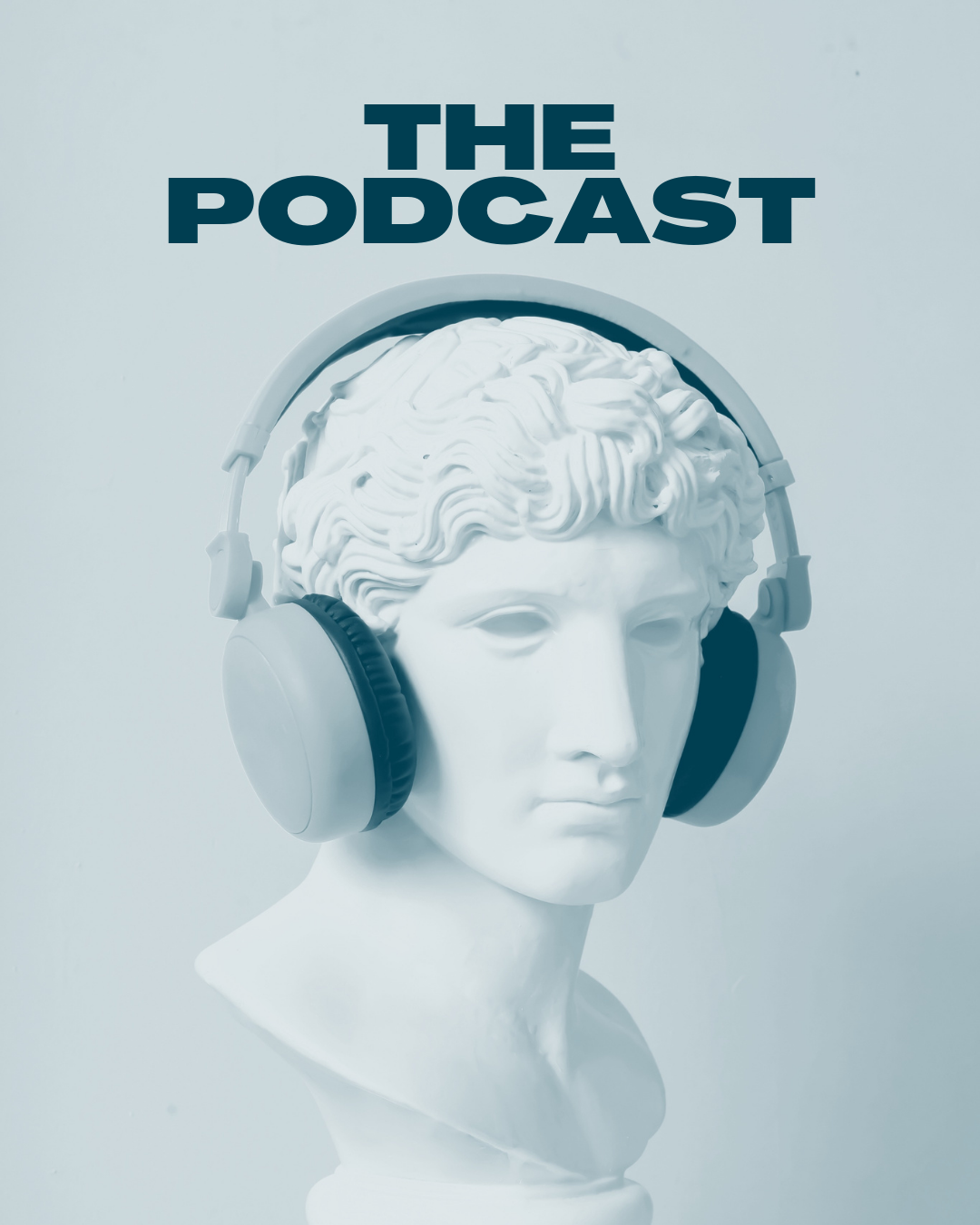Meet the Growers: The Mom-and-pop Owners of Claudine Field Apothecary

ALEXIS YOUNG: The mom-and-pop owners of Claudine Field Apothecary, Jasmine Burems and King Aswad returned to the land and their agricultural roots before they were interested in growing hemp. But after New York State charted a pathway for cultivators’ involvement in a legalized cannabis industry, they prepared to add the cash crop to their Claudine Fields.
KING ASWAD: Welcome to Claudine Filled Apothecary here in the Berkshires, and welcome to our space.
AY: Where Aswad and Burems processed this year's cannabis harvest, they were awarded their adult use cultivator and a processor license in May, just seven years after leaving Bed-Stuy, to return to their homesteading herbalist roots after growing their own food and raising honeybees. The couple branched out to hemp through New York State's industrial carbon sequestration and regenerative agriculture research program, making them eligible for the Seeding Opportunity Initiative three years later.
JASMINE BUREMS: We're coming from a very grassroots, community centered, wellness focused perspective, and it's really starting from the ethos of our small family farm. We're hoping to grow into a large company with 150 employees and we're hoping to really provide security, stability, and a workplace of dignity and self-determination for people within our community. There is a license coming on board, we expect applications to open maybe next year for a particular type of license called a micro-business license. The micro-business license would allow us to cultivate a limited canopy of cannabis, but also process, manufacture, distribute and retail our own product. It's similar to a farm brewery model or a winery model where the cultivator is allowed to bring their product directly to the market. In the case of New York, what's proposed is that we could have a dispensary under a micro-business license, but we could not sell other farms or other cultivator’s products. We could only sell our own products as a micro-business licensee. We would also be able to distribute our brand to other dispensaries. So, we could distribute to all the other dispensaries and have our own headquarters where we sell our own product.
AY: When Burems and Aswad left Brooklyn, the city slickers did not have driver's licenses. They started their farm as well as their young family the same year, and as the pair graduated from water buckets to irrigation systems, their children or “little herbalists” were empowered to engage with the plant kingdom but protected from hemp and cannabis canopies.
JB: We don’t want all the tri-combs rubbing off on their hands. It’s bitter and spicy, and it will burn the eyes, the oil and resins from the plants. So primarily we keep them away from for that reason. From our perspective, just like if we were to cultivate cayenne pepper, you know, we don't want the children touching the pepper either. We really direct them to other plants that they play with and make medicine with. For us it's not a big stigma, it's a part of our life, and it's a part of their environment for sure. We really try not to weigh it down with extra stigma. We don't really want to make them more curious about it, (but) like I wouldn't leave a bottle of Robitussin within reach of my child. I wouldn't leave a tray of cannabis within reach either.
KS: We need to know our plants more, and that's the area that we need to be moving back into, so I support anyone who wants to educate their children. You know, like Jasmine said, the children all the time ask, “What is that Daddy?” It's a plant. I start with that and then I start talking about the qualities of it. My daughter asked the difference between the plants that we're growing now and the plants that we were growing before, and I think my answer was this one has to have more security around it. More people want this one for a recreational purpose, more people want to play around with it versus CBD.
AY: Claudine Fields Apothecary’s commitment to their family and community-based grassroots aligned with some of the benefits of the Seeding Opportunity Initiative that claims to be the first statewide cannabis industry policy with infrastructure supporting BIPOC (Black Indigenous people of color), women, veteran, and legacy market owned entrepreneurship, endeavoring to rectify injustices during the war on drugs. Yet Burems and Aswad only know one other Black owned farm awarded an adult use cultivators license. The cannabis cultivators wanted to see more of themselves in the industry and created the Institute of AfroFuturist Ecology
JB: People who were directly impacted by the war on drugs need to come and feel this energy, need to come feel this freedom, and recognize that this is a moment. We have a long history of challenges with cash crops, exploitation, and extraction, and this is a cash crop. For us as farmers, we will always grow food. We are committed to growing food for our community and will always grow food and medicinal herbs. We will not abandon that and replace all the vegetables in our farm with cannabis.
KA: No mono cropping.
JB: No, we don't believe in mono cropping.
KA: I think farming is the new hip-hop and I think that it is a new movement that’s happening. It is time for our people to get back to the land and get back to ourselves with our hands in the soil.
AY: In the meantime, Burems and Aswad will keep spending most of their lives living in a grower's paradise.
THE PRECEDING IS A TRANSCRIPT FROM THE ORIGINAL BROADCAST VERSION AND HAS BEEN EDITED FOR CLARITY. PHOTOGRAPHY COURTESY OF CLAUDINE FIELDS APOTHECARY.
Explore More
Learn about Jasmine Buremsand King Aswad's unique cannabis growing techniques & challenges
New York is setting itself apart from the rest of the nation with their cannabis plan.



